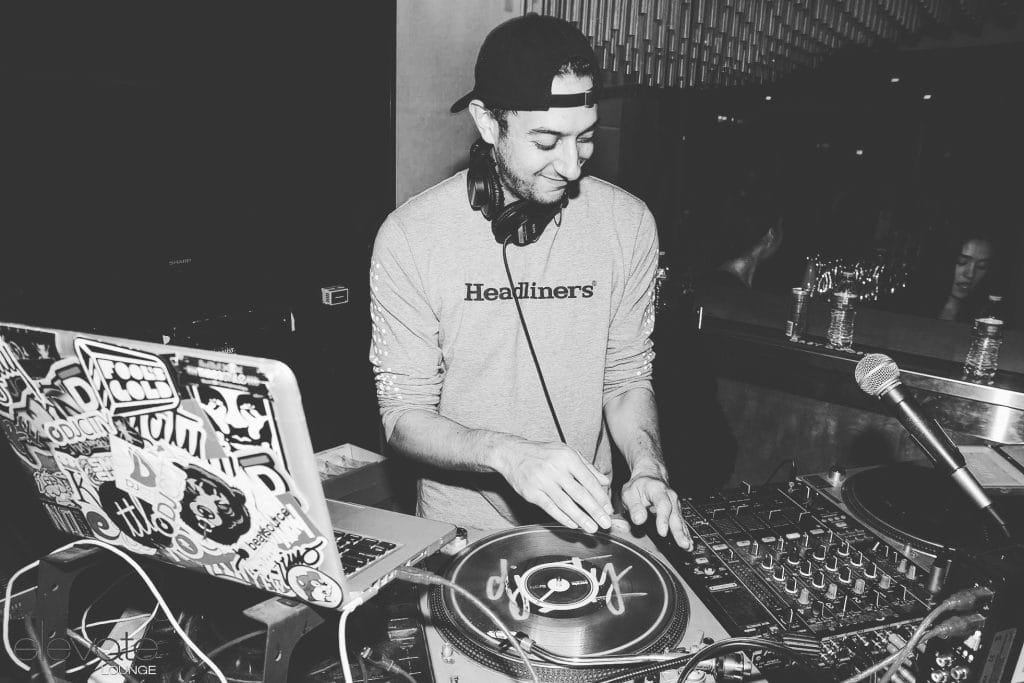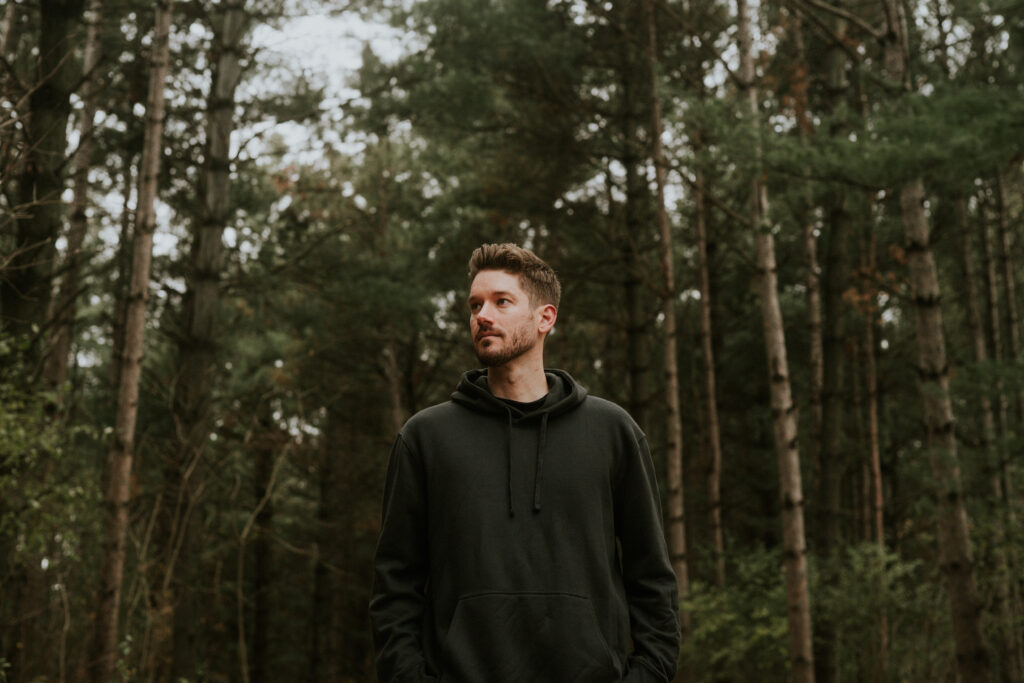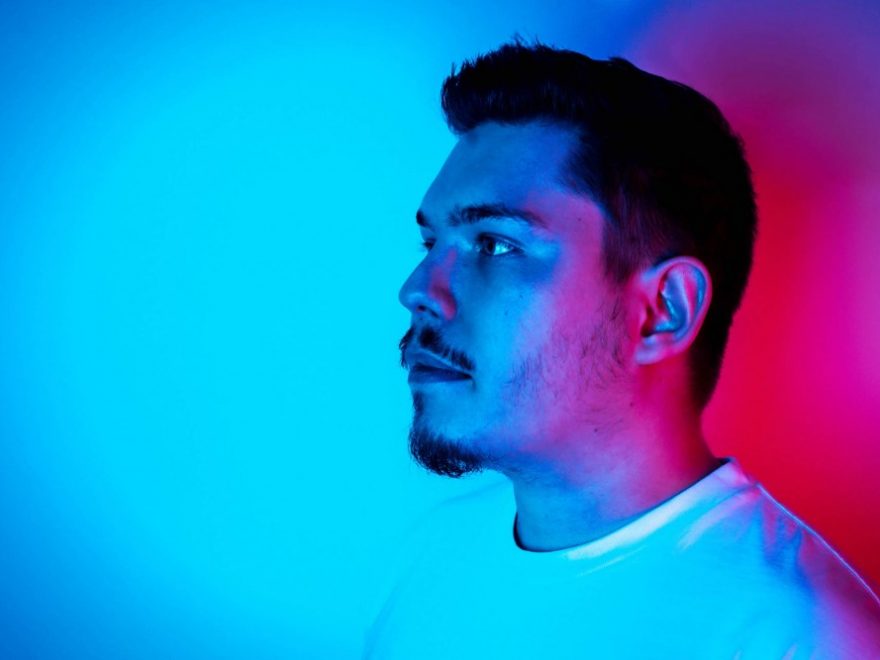At 13 years old, David Ciekanski, also known as Matt Fax, began producing and releasing music. By 16, the promising newcomer had signed with his present-day label Enhanced Music. Shortly after, he became the youngest guest-mixer to be invited onto Above & Beyond‘s Group Therapy radio show. Since then, Fax has taken a brief hiatus only to come back full force, released his debut album Contrast, played cornerstone events like ASOT900, and launched the joint Colorscape series with label mate Dezza—all the while, garnering the support of heavyweights like Armin van Buuren, Lane 8, and Chris Lake. With an affluent influx of learnings and exposure, Fax enters the next chapter of his voyage with sophomore LP, Progressions.
Having risen as a defining act in the cross-sections of progressive house, trance, and techno, Fax delivers Progressions with a steadfast confidence in sound, production, and execution. Pointedly flawless and dexterously ranged, the new album migrates into darker terrains while exploring the possibilities of the vocal-heavy, ambient, energized, and hypnotic outputs of progressive structure. Soaking in wide-angled inspirations from old and new, Fax synthesizes his take on the genre in 17 riveting tracks, bringing in BT, Richard Bedford, RBBTS, Trove, and more for his artistic evolution.
Dancing Astronaut spoke to Matt Fax about the thematic significance behind Progressions, his personal growth, and collaboration processes. Read the full interview and stream the Progressions LP below.
Congratulations on releasing Progressions. How are you feeling?
Thank you! I’m feeling nervous and excited, it’s always stressful to release a project you’ve been working on for the last year, because you never know if you’re going to live up to the expectations. But judging from the first reactions, I think I did my job right, and that makes me feel less nervous.
It’s been a couple of years since your debut album. What approach did you want to take for your second studio album?
My first album was released 3 years ago, while I was still living at my parent’s place and I was still a kid and a “nobody” in this scene. For this new album, I wanted to make the greatest tracks I could ever put out, pushing my limits, trying new styles and things, to show my evolution since Contrast. I also wanted to show a darker side of my music, reflecting my earlier influences and my current ones, avoiding to copy of course.
What new production techniques did you pick up while working on Progressions?
The thing I’ve worked the most on this album was the mix down. I wanted to have the cleanest sound, and also try styles that I actually never tried before. I didn’t want to make the 17 tracks sound the same, so I kind of draw inspiration from various styles and artists. There is a huge use of convolution reverb and reversed delay, as well a granular resampling for textures.
You put incredible amounts of intensity and time into producing this album, as well as the tracks that didn’t make the cut. Did you meet any challenges being immersed in producing 24/7 or hit any creative blocks?
My biggest challenge for this record was to choose which tracks were going to be on the final tracklist. I did over 60 tracks to have a large room and to be able to keep only the best of the best tunes, while keeping a cohesive flow and telling a story throughout the album. My album creation process, I was telling myself, “ok, you’re nobody, nobody knows you, and you have to show what you got.” That encouraged me to put out the best stuff I could do.
What themes are prevalent in the tracks across the album, if any?
The whole theme of this record is about how you can doubt yourself when you hit a level you never thought you’d be able to reach. When I released “To The Ground,” my career did a 360 and I got more exposure than I thought I’d get. From this moment, I felt like everyone was comparing my new stuff to this track, and that I had a level to keep and I had no room for error. I remember telling myself that I will never do better and that track was maybe the peak of my career, and everything else I’d do would be disappointing. That’s why I decided to push my limits and to go beyond my actual level; from now I’m in competition with myself. Several tracks in the record reflect the feeling you get when you hear voices in your head telling you that you can’t achieve something and how toxic it can be, and especially how hard you have to fight to keep going.
There are some eye-catching collaborations on the track listing, from RBBTS to BT and Richard Bedford, to name a few. Can you walk me through how those came together?
First of all, I’m super happy to have these guys on my album as they are artists that I respect and admire. BT has been one of my first inspirations in electronic music, and we’ve become good friends. It’s still unreal to me, he’s such an amazing person, very open, kind and supportive. For our track, we did a couple of collaborations for his album, and one day he sent me stems of a track he made on a 4-track recorder and told me, “let’s get this one for your album.” The track was a 2 minute loop, sounding very deep, and I’ve took it to a more club friendly approach. I’ve played it in a couple of sets and the reaction has been amazing.
On to RBBTS—I did this instrumental demo around the time when “To The Ground” got released, as the label asked me for a follow-up, so I took the track project and just changed the synths and chords. I didn’t like it at first, but then the label sent me a vocal demo for RBBTS, and I remember I nearly cried because firstly, I was happy to have those guys on the track, and secondly, because the lyrics resonated so much with me and translated exactly what I was feeling at the time, about the pressure and my inner self telling me I won’t do better than “To The Ground.”
Lastly, let’s talk about Richard Bedford—the track started in 2013 actually. I was in contact with Richard’s manager at the time, who wanted to start a project with him and a producer, and he thought of me. He sent me a demo and some stems for “Greatest Thing,” and I never finished the track because it was too downtempo for me and the challenge was so big for me. But when going into the album creating process last year, I found back the demo and decided to put a little twist on it, and eventually I finished a full track which I sent to the label, who sent to Richard. He liked it and didn’t even remember the track! He recorded some updated vocals and 7 years after, the track is here on my album. I’m so excited and honoured to have this legendary voice as the closing track of the record.
What do you consider to be good progressive house? How have you taken that idea into innovating your own boundary-pushing progressive?
I think everything is in the name, it needs to “progress.” It should evolve from a point A to a point B or even D. This can be by modifying the melody every 16 bars, or adding drums, or even effects on the main melody to make it sound less repetitive. That’s what I tried to do with this album. I did listen to the tracks while doing other things, and if I was bored of a part, I’d note it and go back into the project being like, “ok, this part needs to have something more.”
You mentioned taking your sound into a darker territory. Apart from natural artistic growth, have there been any personal motivations or life moments that have influenced your artistic identity?
Those who know me personally knows that I come from the Techno and Tech House scene, when I first started to produce back in 2010. I also come from Trance, but that’s a style I have already been making for a few years. I kind of missed those times when I enjoyed the tracks because of the rhythms and the bass works, not because of the melody, so I wanted to go back to that era. Eventually, I did evolve as a more cold and dark person, even thought I do say a lot of funny things. I kind of hide behind the tears of a clown in some sort. I think the whole situation with my sudden breakthrough in the Progressive scene made me darker than I ever was, and that reflected a lot in the music I was making. I will always do music depending on how I feel, my emotions are kind of connected to the music I do.
Who have you been listening to, regardless of genre, to keep you inspired?
I’ve been listening to a lot of melodic techno, and also some warehouse techno. An album that influenced me a lot was Estiva’s Metamorphoses. I have also been listening to a lot of ARTBAT, the whole Drumcode crew, Mind Against, Tale of Us, Sébastien Léger, Joris Voorn, CamelPhat and related acts. Also listened to a lot of IDM and electronica — artists like Burial, Clark, and Tycho among others.
What’s in store for the rest of the year? Any last words?
Because of the current virus outbreak, I’m going to stay home and do livestreams on Twitch, either DJ sets, music production or just chat with people. I’m going to start working on the post-Progressions tracks, find new inspirations or make my sound evolve more.
My final would be, thanks for supporting me, buy the record, or stream it, and please stay home, because that’s where you’ll enjoy the album the most anyway.
Featured Image: First Light Media






